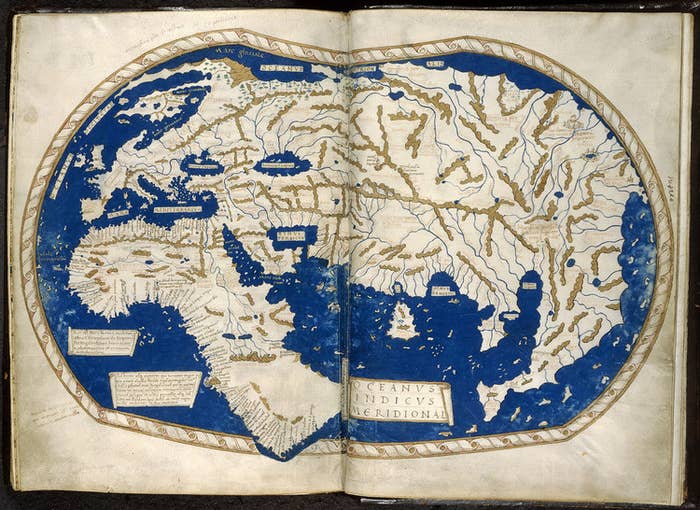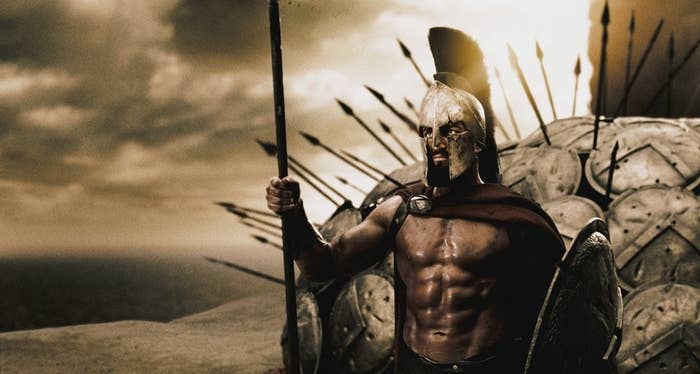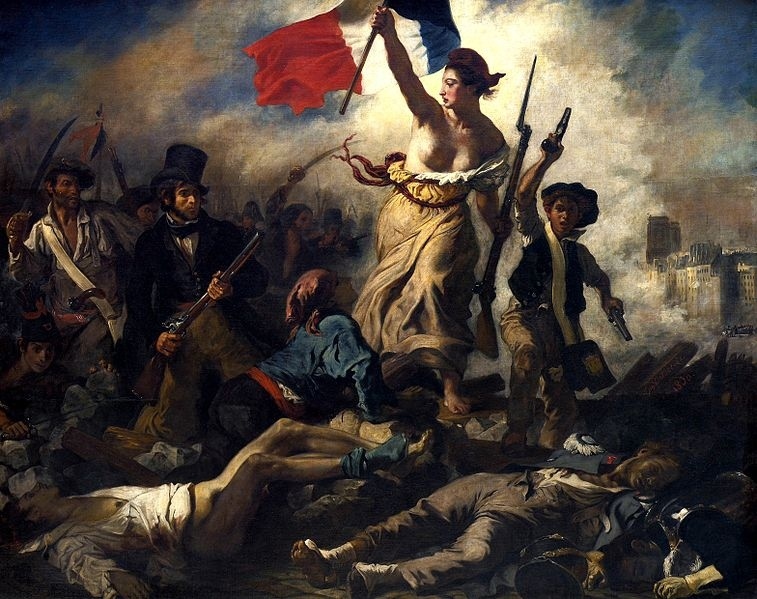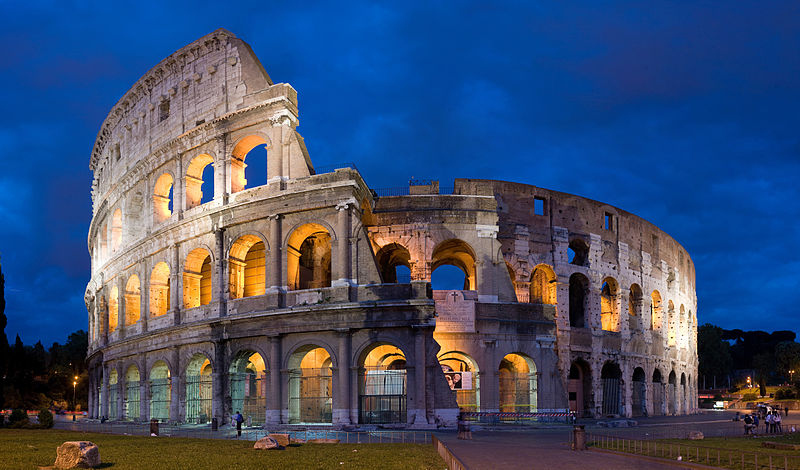
Somewhere, sometime, humanity nailed it. There was a place and a time where and when humans were a better breed. They were more artistic or more intelligent, braver, stronger and probably more beautiful too. It's all lost, of course, but this place still provides us with something to aspire to, peeking out from behind old oil paintings or stately ruins. It's even easy for some people to imagine they would have been happier in that time.
It's a lie. The past has many lessons, but they're rarely convenient, and unless your name was Hapsburg or some similar royal drivel, you probably wouldn't have been better off anywhere in the past. But a lost ideal is soothing to believe in, and it's endemic across the cultural and political spectrum.
The kicker is that these ideals don't remain abstract visions: People actively try to mold society to fit their bygone utopias. While it's fine and natural to draw inspiration from history, when the complexities and reality of the past are ignored, we inevitably repeat history's mistakes. Here are six cases where idealized places differ hazardously from the hype:

1. Ancient Sparta
Idealized by: Soldiers, Martial Artists, “Virtue” Fetishists
The Image: An egalitarian brotherhood of warrior bad-asses, its members bound by high ideals, the backbone of a society devoted to unyielding law and defending their freedoms. Training together, they honed their battle skills to a peak never matched and single-handedly saved Greece (and therefore Western society) from doom at the Battle of Thermopylae.
At home, Spartans managed a virtuous simplicity, respected their elders and even allowed their women far more freedom than the rest of Greece. Reverence of Sparta has lasted for centuries, so much so that it has its own name (laconophilia).
The Reality: Sparta was a stinking, superstitious slave society that pioneered the police state and did its best to crush freedom (even by the crap standards of the iron age) wherever it emerged. Its government was set up to avoid change at almost all costs, leaving it absolutely unable to adapt to the world around it. It wasn't a strong place, but a phenomenally weak one, driven by fear of its massive slave population, social change and its neighbors.
Sparta did play a role in defeating the Persians and managed to gain dominance over Greece, but its obsession with turning power over to crazy old rich people meant that everyone ended up hating it. Under the brilliant general Epaminondas the Theban, democrats beat the living crap out of the Spartans, crushing them on the battlefield before hemming them in, freeing their slaves and kicking out the fragile basis of their entire culture. Their lack of culture and trade meant that they ended up a tourist attraction for the Romans.
Spartan women had more economic clout not because Sparta was less patriarchal than any of the other Greek states, but because their elite disdained commerce and land management, leaving it to the gender they considered lesser. In their view, they were out doing important work, like killing serfs and terrifying their neighbors.
Even its greatest feat wasn't as Spartan as it's presented: While they played an important role at Thermopylae, thousands of warriors from other Greek city states played a role too and many fought as bravely as any of the Spartans.
Ironically, a major part of more flexible modern military tactics were actually developed to defeat the Spartans. Combined arms, refusing a flank and indirect warfare all had ancient predecessors in the brilliant campaigns that ended their rule. Similarly, Epaminondas' emphasis on agility and adaptability rather than brute force is far closer to today's more eclectic, realistic martial arts than anything to come out of Sparta.

2. Late 19th Century Paris
Idealized by: Artists, Cultural Critics, Political Protest Dilettantes, Fans of Musicals
The Image: A golden age of art, literature and intellectual ferment. Paris's rep still endures today. The “city of light” had culture around every corner, with the original Bohemians, the flaneurs and more artistic genius than you could shake a paintbrush at. Occasionally, the people took to the barricades and overthrew their unjust governments, inspiring a vision of revolution that endures to this day.
The Reality: Paris during this time did produce some amazing culture — and a lot of dreck too. It was one of the biggest cities in Europe in a booming era of rapidly increasing education and travel; inevitably, we only remember the things that lasted. Similar things can be said about any major city (New York, for example) that occupied an important role at the right time. As the decades pass, it's easier to see the quality stuff, even if it was only a small percentage of what was being produced at the time. Give it 50 years, and I guarantee you cultural scolds will be pining for the “sophistication” of 1980s Los Angeles.
The politics of the time also failed to make a huge amount of sense. Uprisings were just as likely to be part of infighting by decadent aristocrats, anti-Semitic purges and the aims of military strongmen as they were the revolutions against the era's many oppressions. Victor Hugo, for example, led revolutionaries in the summer of 1848 and helped crush another rebellion just a few months later.
Also, participation in these battles was more often a matter of mass slaughter than glory. This happened so often during the latter half of the 19th century that much of the city was repeatedly demolished, along with thousands of its inhabitants, so all that great culture often ended up in blood and rubble.

3. Imperial Rome
Idealized by: Conservatives, Pundits of Nations in Military Ascendancy, People Whining About the Decline of a “Once Great” Society
The Image: A glittering city of marble, as a Republic and Empire far ahead of its time, Rome's famed army allowed it to get its way around the world. More austere than the pleasure-loving Greeks who preceded them, Rome dominated an empire that lasted for centuries, bringing stability (by force if necessary) to a chaotic world.
The Romans encouraged this illusion. As Virgil summed it up: “Roman, remember by your strength to rule Earth's peoples — for your arts are to be these: to pacify, to impose the rule of law, to spare the conquered, battle down the proud”
The Reality: Propaganda can have a very long shelf life. Ancient Rome was unstable — phenomenally unstable. It wasn't just unstable for a bit either: The history of the early Republic through to the Goths burning the place down is marked largely by coups, overthrows, assassinations and really crazy people with way too much power. If you're looking for modern equivalents, the politics of Rome are better envisioned as a shockingly enduring tinpot dictatorship than a model for good gov’ment. The Pax Romana was an exception, a period when a usually brutal, unstable military oligarchy lucked into some really good leaders who gave the world a bit of a breather from the usual slaughter-fest.
Roman “virtue” too rarely really counted for much. This is a society whose slaves were so miserable that their uprisings had to be numbered, that crucified entire cities, that had a word for “kill every 10th person” (decimation). Even in their twilight, the Romans were so committed to being terrible assholes that they were making enemies out of people, like the Goths, who originally wanted their help. It's also difficult to find a time in Rome where corruption and betrayal weren't endemic. If they hadn't had a really, really good army that was constantly conquering other places, Rome would've gone down as a barbaric footnote — and when the conquering stopped, it pretty much did.
While the Romans had plenty of achievements, the sheer damage and oppression they inflicted on the world is too rarely acknowledged, and reverence of Imperial Rome through the centuries has replicated its faults over and over again.

